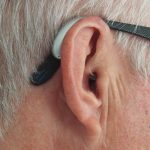
John Baker summarises a new Norwegian trial published last week, which compares an open-door policy to treatment-as-usual in urban psychiatric inpatient wards.
[read the full story...]
John Baker summarises a new Norwegian trial published last week, which compares an open-door policy to treatment-as-usual in urban psychiatric inpatient wards.
[read the full story...]
In her debut blog, Asha Ladwa discusses a secondary analysis of data from the ANTLER trial, which investigated the clinical factors associated with relapse in primary care patients on long-term maintenance antidepressants.
[read the full story...] Does delivering cognitive behavioural therapy via text messages help improve depression in young people?
Does delivering cognitive behavioural therapy via text messages help improve depression in young people?
Becky Appleton summarises a randomised controlled trial investigating the effectiveness and acceptability of text-based Cognitive Behavioural Therapy for improving depression in young adults.
[read the full story...]
Emanuele Osimo blogs about the 20-year follow up of the OPUS trial, which tested early intervention services for people with first-episode schizophrenia spectrum disorder.
[read the full story...]
Emmeline Lagunes-Cordoba summarises a cluster randomised controlled trial exploring the effectiveness of a low-intensity psychological intervention to reduce mental health stigma and improve help-seeking in the workplace.
[read the full story...]
In her latest blog, Francesca Zecchinato summarises findings from a recent pragmatic, partially randomised, patient preference trial on two forms of guided self-help for anxiety.
[read the full story...]
In this blog, Daisy Long and the elf apprentices that took part in the woodland workshop undertook a group critical analysis on Lin, F.R., Pike, J.R., Albert. M.S., Arnold, M., Burgard, S., Chisolm, T. & others (2023) paper on Hearing intervention versus health education control to reduce cognitive decline in older adults with hearing loss in the USA (ACHIEVE): a multi-centre, randomized controlled trial.
[read the full story...]
In this blog, Francesca Kingston summaries a clinical trial from the US Care Project, which investigated whether depression can be reduced during pregnancy and before birth using a brief, safe intervention.
[read the full story...]
Georgie Parker summarises a recent study which outlines the results of three trials exploring the effectiveness of a peer-led dissonance-based programme for preventing the onset of eating disorders.
[read the full story...]
In her debut blog, Ella Tuominen considers the Tavistock Adult Depression Study (TADS), which evaluated the cost-effectiveness of long-term psychoanalytic psychotherapy for treatment resistant depression compared to treatment as usual.
[read the full story...]